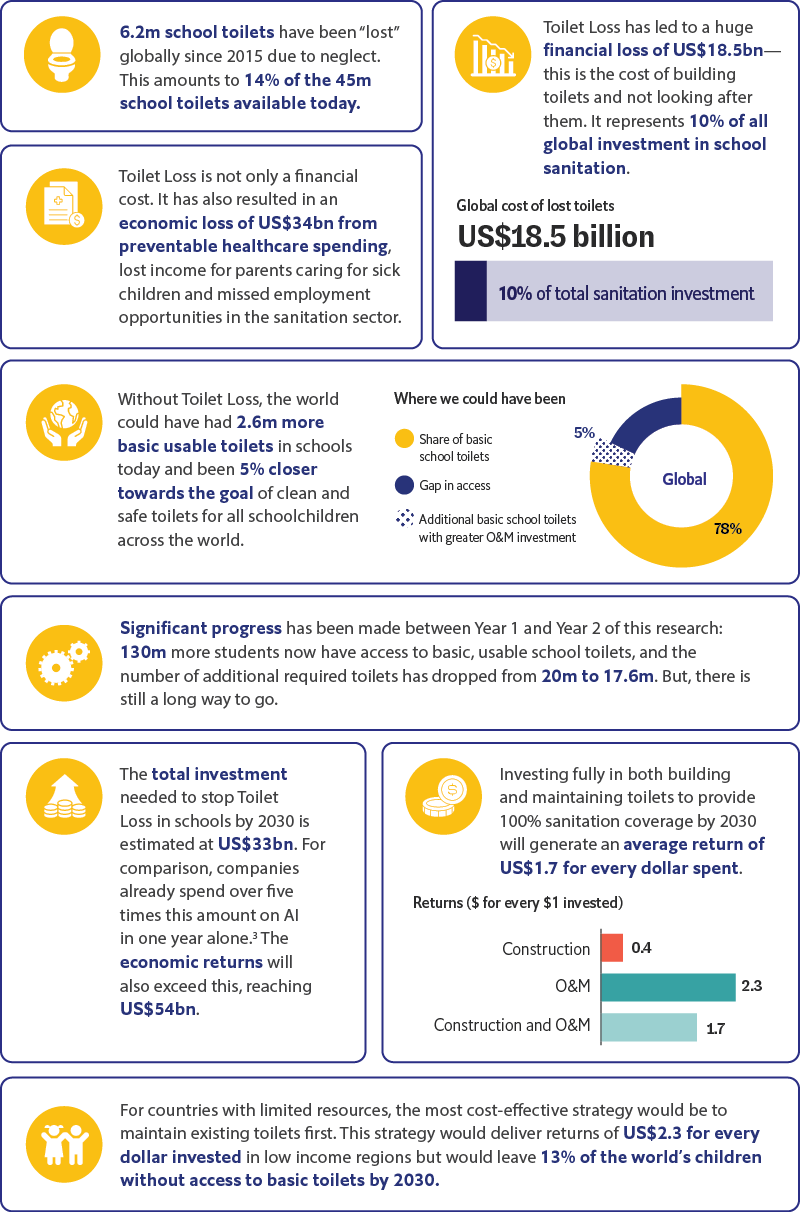By Shivangi Jain and Dina Alborno
Schools are more than places to learn—they shape a child’s future. Yet, for millions of children worldwide, this critical environment is undermined by something as simple as access to a basic toilet.
Globally, 427m children go to school each day without a toilet that they can use. Unfortunately, the issue is not only whether schools have toilets. The reality is that 205m children attend schools where toilets exist but are unusable—these toilets are lost to neglect and children suffer as a result. This is a hidden phenomenon known as “Toilet Loss”, and it is happening in schools all over the world.
“Toilet Loss is yet another barrier for children, and particularly girls, to go to school; addressing it should be part of any plan to achieve SDG 4.”
Manos Antoninis, director of the Global Education Monitoring Report, UNESCO
Now in its second year, the research quantifies the magnitude of Toilet Loss and tallies its vast costs for children, their families and whole economies. Covering 65% of the world's school children in 118 countries, the analysis builds on the four country pilot study published in 2023.
Key Findings

What needs to change
Intersectoral collaboration between WASH and education policymakers, schools and education providers, regulators and the private sector is crucial. It’s what is needed to deliver the system-level change for all children to go to school with a usable toilet. Changing long-established systems is never easy, but it is possible (see country examples in the paper).
Toilet Loss is a crisis we cannot afford to ignore. The benefits are clear: healthier students, improved academic performance and stronger economies. No child should face a school day without access to the basic human right of a clean, functional toilet.
Download our briefing paper to further explore this year's global findings and a working action plan to tackle Toilet Loss.
Explore our previous findings and methodology:





